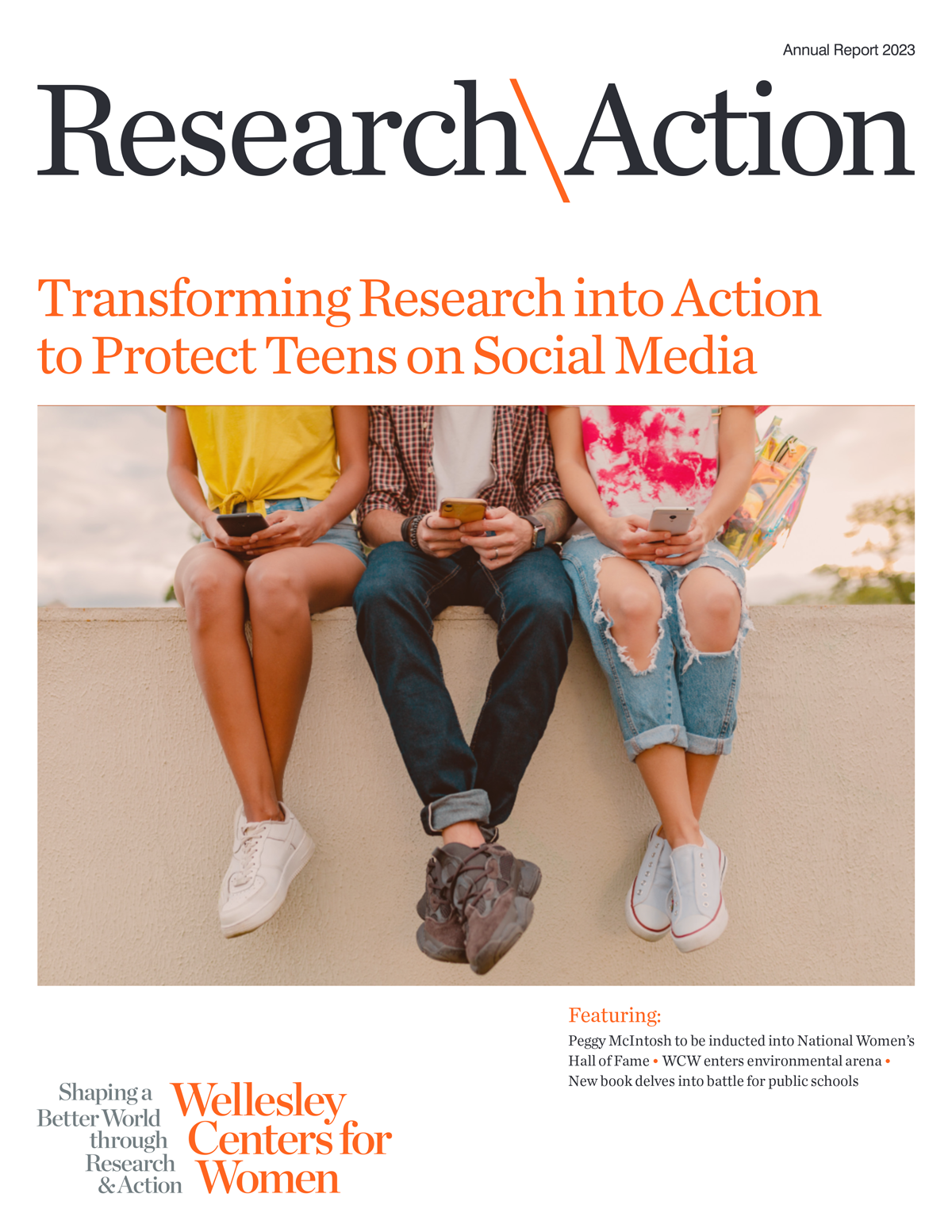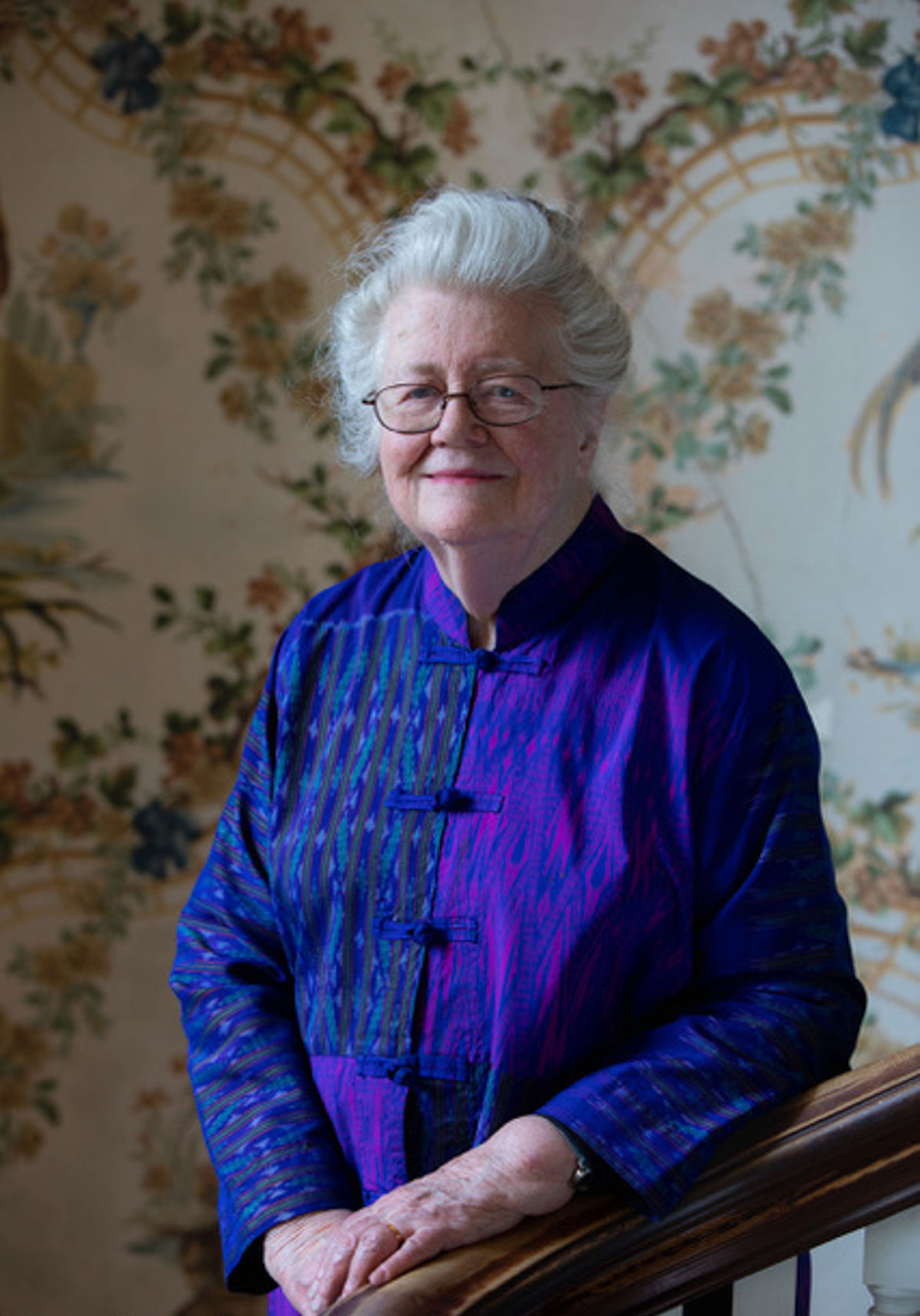 Image credit: Lisa Abitbol
Image credit: Lisa Abitbol
We are proud to announce that Senior Research Scientist Peggy McIntosh, Ph.D., will be inducted into the National Women’s Hall of Fame in March 2024.
Over her 43 years at WCW, McIntosh has brought new angles of vision to matters of power, knowledge, and self-doubt. Her work has had a transformative effect on people in many walks of life in the U.S. and around the world.
In 1986, McIntosh founded the National SEED (Seeking Educational Equity and Diversity) Project on Inclusive Curriculum, which she co-led with Emily Style for its first 25 years. SEED trains leaders to create their own local, year-long, peer-led seminars that help their communities and workplaces to become more whole and inclusive. Over the last 36 years, 3,275 SEED leaders have enrolled 62,000 participants.
McIntosh’s 2019 book On Privilege, Fraudulence, and Teaching As Learning includes her most famous papers, “White Privilege and Male Privilege: A Personal Account of Coming to See Correspondences through Work in Women’s Studies” and “White Privilege: Unpacking the Invisible Knapsack.” Her four-part paper series, “Feeling Like a Fraud,” also empowers readers to trust their own observation of their life experiences.
I couldn’t possibly have done the work for which I’m getting this honor if it hadn’t been for WCW—its fabulous administrative support for getting grants, its colleagueship, and the freedom of thought here. Just the fact that you don’t have to apologize in this building for doing research on women.
The National Women’s Hall of Fame 2023 inductees include, alongside McIntosh: Patricia Bath, Ruby Bridges, Elouise Cobell, Kimberlé W. Crenshaw, Judith Plaskow, Loretta J. Ross, Allucquére Rosanne “Sandy” Stone, Anna Wessels Williams, and Serena Williams. Previous Wellesley inductees include Madeleine Korbel Albright ’59, Hillary Rodham Clinton ’69, and Jean Kilbourne ’64.
To commemorate this historic event, McIntosh sat down with WCW Executive Director Layli Maparyan, Ph.D., to discuss her life’s work.
LM: Very few women in U.S. history get inducted into the National Women’s Hall of Fame, and those who are inducted are trailblazers, changemakers, leaders, and innovators, which you clearly are. Your work on white privilege has made “privilege” a household word in American society—just as Kimberlé Crenshaw did with “intersectionality”—and it has enabled us to advance social justice in ways that we wouldn’t be able to do without having the terminology. How did the concept of white privilege come into being for you?
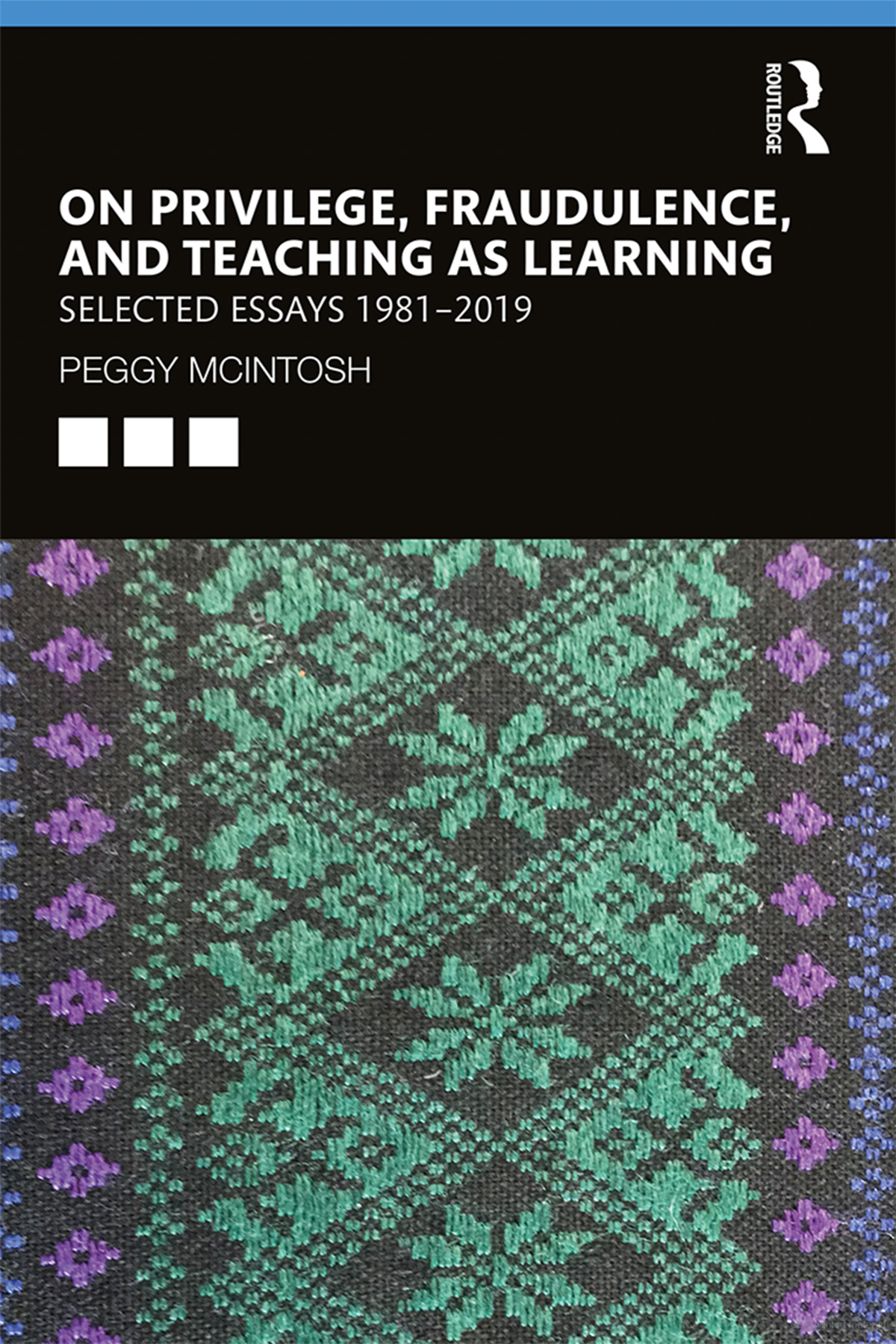
PM: I observed men having doors open for them whether or not they seemed to merit this special entree. I also saw it had nothing to do with whether they were “nice men.” Even terrible men had societal doors open for them! So I began to write about ways to bring the work of more women into the liberal arts curriculum. But then I recalled women of color in the Boston area—members of the Combahee River Collective—saying how disappointed they were that so few white women had learned about or been interested in their lives as Black women, and I looked at my work getting women into the curriculum and realized it was mostly about the work of white women, including myself. It had nothing to do with whether I was a “nice person”! So I began to try to cobble together some examples of how the doors have opened for me. What did I have that I hadn’t earned? What was given to me because I was white? I made a list of 46 examples of the unearned advantages I had, being born white in a culture that favored whites. I published it in 1988.
 McIntosh at her desk in the early 1980s; Maparyan and McIntosh at a celebration of McIntosh’s career in 2015; SEED Co-Director Emerita Brenda Flyswithhawks, McIntosh, and former SEED National Staff member Hugo Mahabir
McIntosh at her desk in the early 1980s; Maparyan and McIntosh at a celebration of McIntosh’s career in 2015; SEED Co-Director Emerita Brenda Flyswithhawks, McIntosh, and former SEED National Staff member Hugo Mahabir
LM: It’s funny, my first encounter with both you and WCW came when I was trying to find your “Invisible Knapsack” article for my students at the University of Georgia— this was pre-internet—and I had to get special permission to use it. I was teaching a multicultural psychology class, and I made each student read one of the examples out loud. I remember what a transformative experience it was for each of those students to really go, “Wow, I never thought about that.” Even the Black and Asian and Latino students in the class had an aha! moment, and I remember for myself, the one that sat with me the most was: “I can get Band- Aids in my skin color.” It really brought to my attention how even the most mundane things have to change to really bring about equal representation, participation, access, and social justice. What other reactions were there to your papers on privilege?
PM: Many white women have said, “Thank you, I never thought of any of this before.” Many women of color have also thanked me for something else, saying: “Thank you, you showed me I’m not crazy.” It is deeply satisfying to have both changed the awareness of white women and white men who have read the papers, and also to have put some floor of support under those who know they’ve been oppressed.
LM: In addition to your work on privilege, what other bodies of work are you most proud of? And how has WCW influenced your work?
PM: Let me start by saying I couldn’t possibly have done the work for which I’m getting this honor if it hadn’t been for WCW—its fabulous administrative support for getting grants, its colleagueship, and the freedom of thought here. Just the fact that you don’t have to apologize in this building for doing research on women. In 1979, I was hired by founding director Carolyn Elliott, who supported all kinds of work on women and would not have thought of asking us to stay within disciplinary boundaries. And when I began to talk about things like white privilege and expanding the liberal arts curriculum, Wellesley’s reputation gave an incentive to audiences to give me the benefit of the doubt.
As for my other work, I like my “Feeling Like a Fraud” essays because they have enabled so many people to stop feeling like frauds. I told my stories, and that mode became easy for people to relate to. I also spoke in the first person, so I was able to convey that I’m talking about myself, not about you.
LM: Which is the same technique used in SEED discussions.
PM: Yes—serial testimony. In serial testimony, a meeting does not have a chairperson who will control it. It has a facilitator, and it consists of people’s accounts of how they’re feeling about a certain topic. The talent of the facilitator lies in choosing a kind of topic that everybody can relate to—and it delights me that you don’t need an advanced degree to be a SEED facilitator! One school nominated the cafeteria cook to be the facilitator, because everyone agreed she was the best community-maker.
After a question or a prompt has been put out there by the facilitator, the people in the group all speak in turn around a circle, timed, and there is no interrupting and no reference to what anyone else has said. The testimonies are about your experience, not your opinions. There’s a big difference. Opinions are gathered from all over the place, and experiences come from right in here [pointing to her heart].
I think these ideas and methods are my most useful work. When I was small, I wanted above all things to be popular. Then by the time I was 35, I decided I would rather be useful than popular. The Hall of Fame award is for the ways I have been judged to have been useful.
This interview originally appeared as a Spotlight on Wellesley article by E.B. Bartels.
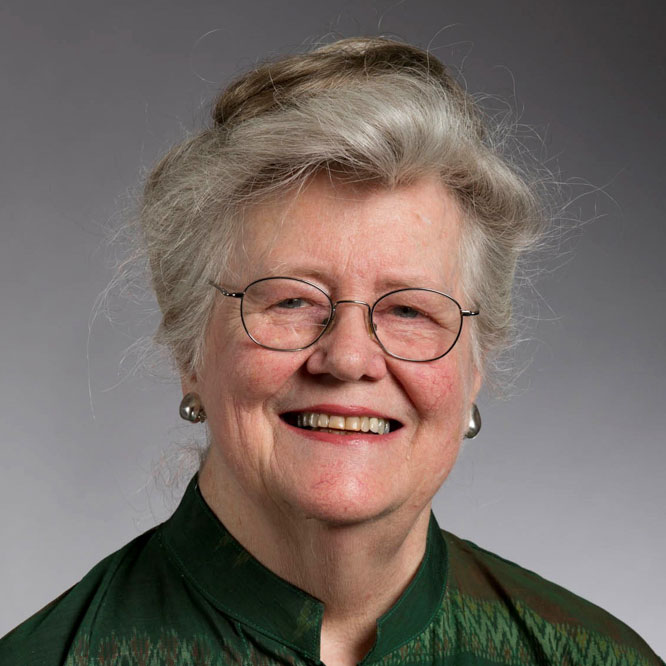 Peggy McIntosh, Ph.D., is a senior research scientist and former associate director at WCW. She is the founder of the National SEED Project.
Peggy McIntosh, Ph.D., is a senior research scientist and former associate director at WCW. She is the founder of the National SEED Project.
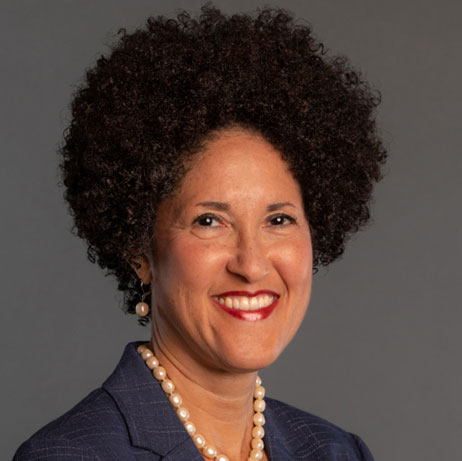 Layli Maparyan, Ph.D., is WCW’s executive director and a professor of Africana Studies at Wellesley College.
Layli Maparyan, Ph.D., is WCW’s executive director and a professor of Africana Studies at Wellesley College.

